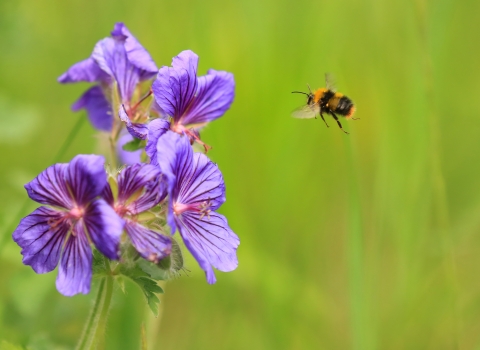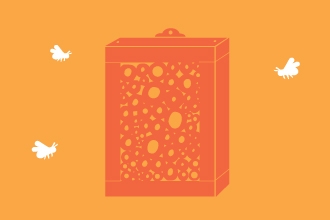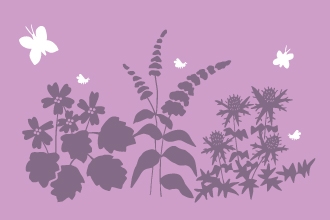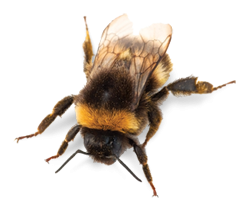Our insects are in trouble
In the UK, our insect populations have suffered drastic declines, which are set to have far-reaching consequences for both wildlife and people.
With a third of our food crops pollinated by insects, and as many as 87% of our plants pollinated by animals (and in the majority by insects) there is a lot to lose. Much of our wildlife, be it birds, bats, reptiles, amphibians, small mammals or fish, rely on insects for food. Without them, we risk the collapse of our natural world.
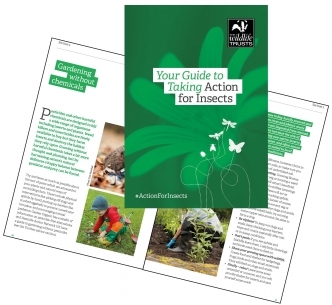
To reverse the decline of insects and allow them to thrive once more, The Wildlife Trusts want to see at least 30% of land and seas properly connected, better protected and suitably managed for nature. To achieve this, it requires us all to become insect champions, taking action at home and work, in our communities and schools.
Claim your FREE Action for Insects guide and start to make a difference today!
School resources
Your school can take part and become an insect champion! We've produced a school guide which you can download for free, full of lesson plans and resources to help your school to take action for insects.
Whether it's through a bug hunt, creating insect homes in your school grounds, or delivering a campaign to help insects, there are lots of ways that your school can make a difference and learn at the same time.
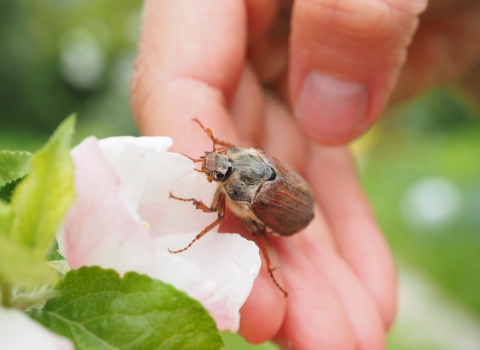
How will your FREE Action for Insects guide help you to make a difference?
Packed full of easy to follow advice and tips, our Action for Insects guide will help you to:
- Create a wildlife and insect-friendly garden
- Plan your garden and choose the right plants
- Stop using harmful chemicals inside your home and in your garden
- Make lifestyle changes that will benefit insects
- Find out more interesting facts and information to help create a wilder Lincolnshire
Read the report
A report, Insect Declines and Why They Matter, published in November 2019 by an alliance of Wildlife Trusts in the south-west, brought together evidence that showed the loss of 50% or more of our insects since 1970, and the shocking reality that 41% of the Earth's remaining five million insect species are now 'threatened with extinction'.
In this latest report, Professor Dave Goulson summarises some of the best available evidence of insect declines and proposes a comprehensive series of actions that can be taken at all levels of society to recover their diversity and abundance.
What we're doing to help
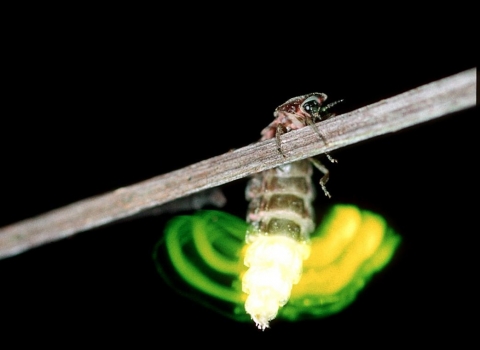
Glow-worm female (c) John Tyler
Creating habitat for glow worms in Lincolnshire
Find out how Conservation Officer, Mark Schofield, has been helping glow-worms to thrive in this popular Lincolnshire woodland, with the help from an army of workers.
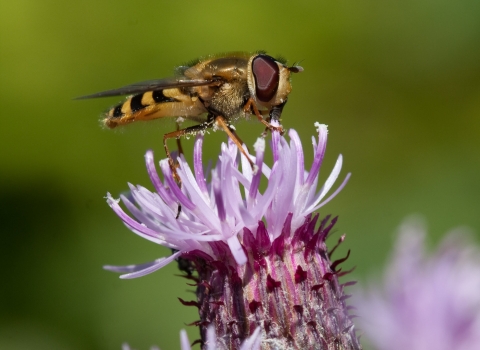
Vaughn Matthews
Case studies from across the UK
The Wildlife Trusts commissioned a second report published in July 2020, Reversing the Decline of Insects, which looked at case studies around the UK that are working hard to bring back insects. Read more about our insect champions in the report below.
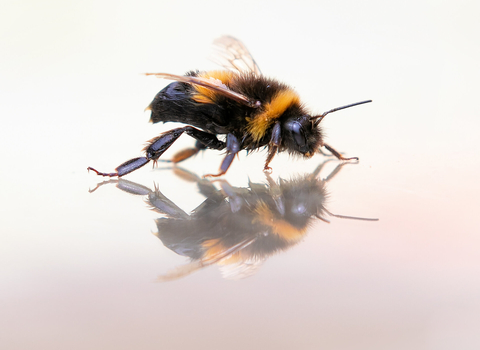
Jon Hawkins - Surrey Hills Photography
Campaigning for a ban on neonicotinoids
A pesticide known to kill bees has been authorised for farmers to use on sugar beet crops in England. This deadly neonicotinoid ('neonic') is thiamethoxam, which was banned in 2018 because of the wide-spread harm it causes to wildlife. Sign our petition and help us to urge the government to overturn this decision to allow bee-killing pesticides.

